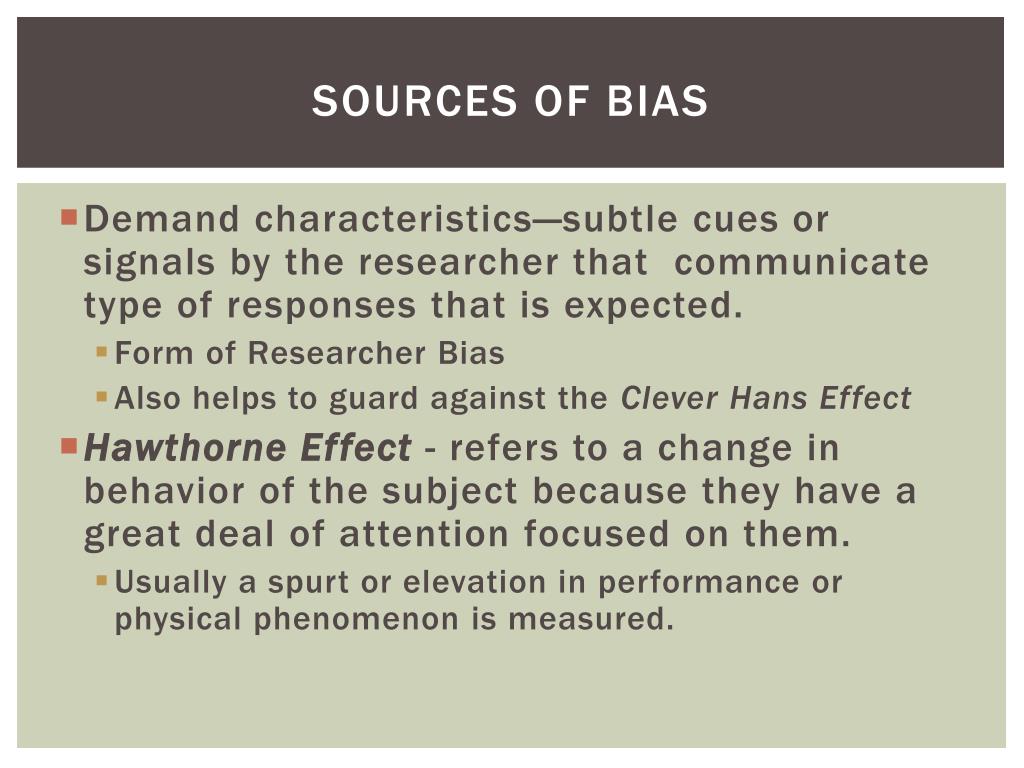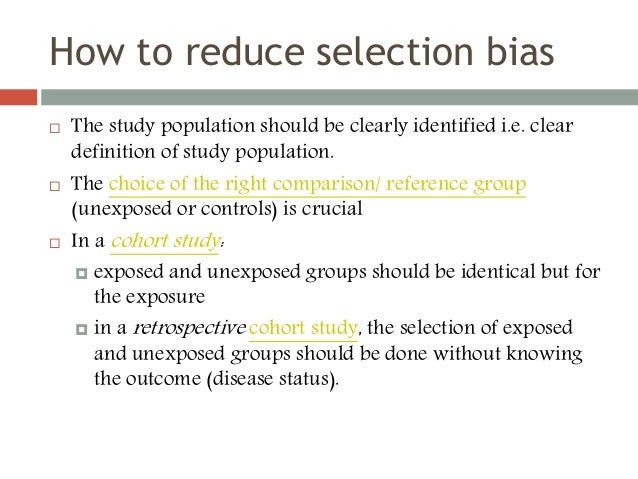
The publication standards for research articles in a specific area frequently reflect this bias on them. Analysis bias can also make it easier for reporting bias to happen. It refers to a condition in which favorable outcomes are more likely to be reported than negative or empty ones.

As a result, participants are forced to submit half-thoughts with misinformation, which does not accurately reflect their thinking.Īnother sort of study bias is using individuals who are forced to participate, as they are more likely to complete the survey fast, leaving them with enough time to accomplish other things.įor Example, If you ask your employees to survey their break, they may be pressured, which may compromise the validity of their results.Ī sort of bias that influences research is publication bias. Procedural bias is a sort of research bias that occurs when survey respondents are given insufficient time to complete surveys.
#Emc research bias full
Selection bias is also referred to as sampling bias.įor example, research on a disease that depended heavily on white male volunteers cannot be generalized to the full community, including women and people of other races or communities. When the sampling method puts preference into the research, this is known as sampling bias. In research, selection bias manifests itself in a variety of ways. Selection bias occurs when volunteers are chosen to represent your research population, but those with different experiences are ignored. It’s possible that the group tested was all male or all over a particular age. It occurs when the researchers’ original concerns are not reflected in the exposure, which is all too often these days.įor example, a researcher working on a survey containing questions concerning health benefits may overlook the researcher’s awareness of the sample group’s limitations. The researcher must demonstrate that they realize this and have tried to mitigate its influence.Īnother design bias develops after the research is completed and the results are analyzed. It has something to do with the organization and its research methods. Let’s look at some of the most typical research biases.ĭesign bias happens when a researcher fails to capture biased views in most experiments.

The sorts of biases that come directly from the survey maker are the easiest to deal with out of all the types of bias in research. Types of research bias with examplesīias can be seen in practically every aspect of quantitative research and qualitative research, and it can come from both the survey developer and the participants. It may reduce reliance on scientific evidence for decision-making. Biased research can damage public trust in science. Research bias undermines scientific credibility. Biased research can misinform decision-making processes, leading to ineffective interventions, policies, or therapies. It can have negative effects on individuals, groups, or society as a whole. Researchers may be tempted to interpret the findings in a way that confirms their previous assumptions or expectations, ignoring alternate explanations or contradictory evidence. It can alter the overall comprehension of the research issue. Biased research can lead to unjustified or wrong claims because the results may not reflect reality or give a complete picture of the research question.īias can lead to inaccurate interpretations of research findings. It can make it hard to believe that the findings of a study are correct. If bias affects how a study is set up, how data is collected, or how it is analyzed, it can cause systematic mistakes that move the results away from the true or unbiased values. It can make the study less trustworthy and valid.

When bias is present, study results can be skewed or wrong. Here are some examples of how this bias might affect the research process: Research bias can majorly affect the research process, weakening its integrity and leading to misleading or erroneous results. How does research bias affect the research process? Understanding research bias and reducing the effects of biased views is an essential part of any research planning process.įor example, it is much easier to become attracted to a certain point of view when using social research subjects, compromising fairness. The most important thing to know about bias is that it is unavoidable in many fields. It is often known as experimenter bias.īias is a characteristic of the research technique that makes it rely on experience and judgment rather than data analysis. Research bias is a technique in which the researchers conducting the experiment modify the findings to present a specific consequence.


 0 kommentar(er)
0 kommentar(er)
